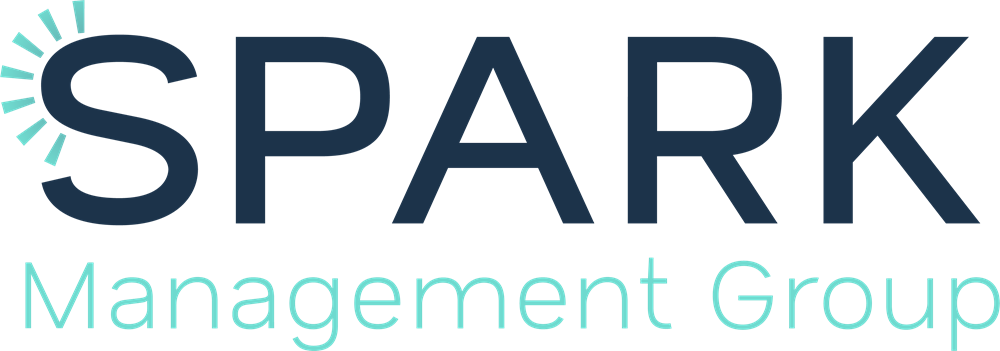What if the secret to attracting top talent isn’t just about salary or flashy job titles? Imagine a workplace where people genuinely feel valued, supported, and excited to grow. That’s the magic of a healthy work environment—a place where employees don’t just show up but thrive. In today’s competitive job market, companies are realizing that culture isn’t just a nice-to-have; it’s a must-have.
In this article, we’ll break down how workplaces that prioritize inclusivity, mentorship, and growth opportunities become magnets for skilled professionals at every career stage. We’ll look at why employees are no longer satisfied with just a paycheck and how companies that focus on creating a supportive workplace environment are winning the talent game. Whether you’re a hiring manager or someone looking for your next role, you’ll see why culture isn’t just a word—it’s the backbone of a successful team.
Why Culture Matters More Than Ever
The days of sticking with a job just for the paycheck are fading. People want more from their careers now. They’re looking for workplaces where they feel respected, where their mental health isn’t an afterthought, and where they can actually enjoy the hours they spend working. And honestly, can you blame them? The pandemic changed the way we think about work, and employees are no longer willing to settle for environments that drain them.
A healthy workplace isn’t just about free snacks or casual Fridays (though those don’t hurt). It’s about creating a space where people feel safe to speak up, take risks, and be themselves. Companies that ignore this shift risk losing great employees to competitors who get it. Think about it—if you had two job offers with similar pay, wouldn’t you pick the one where you’d feel happier and more supported?
This shift isn’t just happening at the individual level. Entire industries are seeing a cultural reset, with employees demanding better treatment and more meaningful work. Companies that embrace this evolution by fostering a positive work culture are the ones that will attract and retain the best talent.
A Workplace Where Everyone Belongs
Inclusivity isn’t just a checkbox for HR. It’s about making sure everyone—regardless of background, identity, or experience—feels like they’re part of the team. When people walk into a meeting and don’t see anyone who looks or thinks like them, it’s hard to feel like they belong. But when a company actively works to include diverse voices, it sends a clear message: You matter here.
So, how do you build that kind of environment? Start with policies that promote fairness, like blind resume reviews or flexible work arrangements for parents and caregivers. But it’s bigger than rules—it’s about daily actions. Listening to employees, celebrating differences, and addressing biases head-on are all part of creating a truly inclusive culture.
For example, consider how small changes can make a big impact. Something as simple as using gender-neutral language in job postings or ensuring that office spaces are accessible to people with disabilities can signal potential hires that your company values inclusivity. People are likelier to stick around when they feel seen and respected. Plus, diverse teams bring fresh ideas to the table, which is a win for creativity and problem-solving.
Nurturing Talent at Every Stage
Have you ever started a new job and felt totally lost? That’s where mentorship comes in. Pairing new hires with experienced team members isn’t just about teaching them the ropes—it’s about building trust. For someone just starting out, having a go-to person for advice can make all the difference. And for mentors, it’s a chance to grow their leadership skills while staying connected to the team.
But mentorship isn’t only for rookies. Even seasoned pros need support to keep growing. Maybe they want to learn a new skill or transition into a leadership role. A culture that encourages open feedback and regular check-ins helps everyone feel invested in each other’s success.
Let’s not forget also that mentorship programs can take many forms. Some companies pair employees one-on-one, while others create group mentorship circles. The key is to make sure these programs are structured but flexible, allowing relationships to develop naturally. When people know their growth matters to the company, they’re more likely to stay and contribute their best work.
Empowering Employees to Thrive
Nobody wants to feel stuck in a dead-end job. Talented people—whether they’re fresh grads or industry veterans—look for roles where they can keep learning and advancing. That means companies need to offer clear paths forward, whether through promotions, skill-building workshops, or chances to lead projects.
But growth isn’t just about climbing the ladder. It’s also about personal development. Maybe an employee wants to improve their public speaking or learn coding basics. Supporting those goals shows you care about them as a whole person, not just their output.
On top of that, growth opportunities can come in many forms. Some companies offer tuition reimbursement for further education, while others provide stipends for attending conferences or taking online courses. The important thing is to make these opportunities accessible and visible to everyone. When employees feel their ambitions align with the company’s mission, they’ll bring more passion and creativity to their work.
The Foundation of a Healthy Work Environment
Burnout is real, and it’s a major red flag for job seekers. A company that expects employees to answer emails at midnight or work through weekends? That’s a hard pass for most people. A workplace that prioritizes work-life balance not only attracts top talent but also fosters long-term employee satisfaction and loyalty.
Flexibility is key here. That could mean hybrid schedules, unlimited PTO, or simply trusting employees to manage their own time. But it’s not just about logistics—it’s about attitude. Leaders who model healthy boundaries (like not sending late-night Slack messages) set the tone. When leaders respect personal time, employees feel more motivated, valued, and less pressured to be constantly “on.”
Keep in mind as well that well-being goes beyond just time off. Companies can support mental health by offering counseling services, wellness programs, or even just creating a culture where it’s okay to take a mental health day. Small efforts, like promoting open conversations about stress or mental health, can make a huge difference in creating a supportive workplace.
How a Healthy Workplace Enhances Employer Branding
Happy employees are your best recruiters. When people love where they work, they’ll shout it from the rooftops—or at least on LinkedIn and Glassdoor. Positive reviews and word-of-mouth referrals can do more for your hiring efforts than any job ad. A company that fosters a supportive, engaging workplace naturally builds a reputation that draws in top talent.
Think about it: if a friend raved about their awesome boss, flexible hours, and supportive team, wouldn’t you want to apply there, too? A strong employer brand doesn’t just attract talent—it keeps them. And when turnover stays low, companies save time and money on constant hiring. This stability not only strengthens team dynamics but also enhances overall productivity and morale.
Aside from that, a great employer brand can also help you stand out in crowded industries. When candidates see that your company is known for treating employees well, they’re more likely to choose you over competitors. It’s a win-win. A positive workplace reputation can be the deciding factor for top-tier professionals choosing where to build their careers.
The Impact of Sustaining a Healthy Workplace
Building a great workplace isn’t a one-and-done project. It takes ongoing effort. Regular employee surveys, open-door policies, and adapting to feedback keep the culture from getting stale. Consistent reinforcement of company values ensures that employees remain engaged and aligned with the organization’s mission. Leaders must also walk the talk—if executives don’t buy into the values, why should anyone else?
The payoff? Loyalty. Employees who feel cared about will stick around through tough times and contribute their best ideas. A workplace that fosters trust and transparency naturally encourages collaboration and innovation, making teams more resilient. Over time, this creates a cycle of success: great talent builds a strong culture, which attracts more great talent.
Remember that sustaining a healthy workplace requires adaptability. As employee needs and industry trends change, companies need to stay ahead of the curve. By proactively evolving workplace policies and benefits, businesses can ensure they remain attractive to top talent while keeping current employees motivated and satisfied. This might mean updating policies, introducing new benefits, or simply listening more closely to what employees are saying.
Great Workplaces Build Great Teams
A healthy workplace isn’t a luxury—it’s necessary to attract and keep top talent. From inclusivity to mentorship to flexibility, these elements show employees they’re valued beyond their job titles. Companies that invest in their culture don’t just fill seats; they build passionate, innovative teams that drive long-term success.
At Spark Management Group, we believe that a strong workplace culture is the foundation of success. As a sales and marketing firm, we’ve seen firsthand how a supportive environment can bring out the best in people and drive incredible results. If you’re looking to build a team that’s as passionate as you are, let’s talk. Reach out to us today, and let’s create a workplace where talent thrives and businesses grow.

